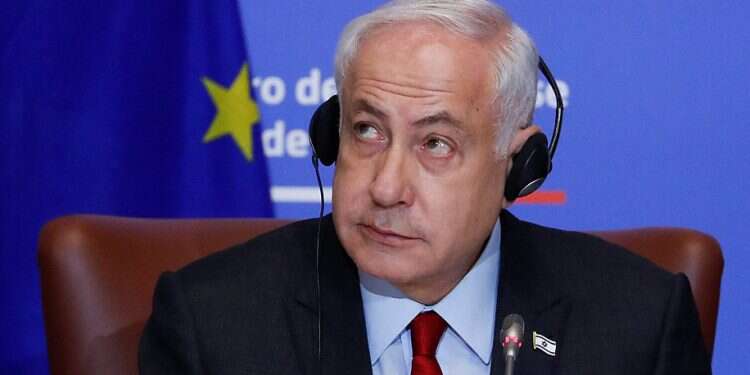One sentence has dominated talks between Benjamin Netanyahu and his associates, a sort of mantra that reflects the prime minister's mindset in recent years, especially since returning to power.
Follow Israel Hayom on Facebook, Twitter, and Instagram
"Everything is reversible," Netanyahu often tells his associates – his trial, governance, and legislation. "Everything is reversible except for one thing – if Iran goes nuclear, that is the end of us."
Netanyahu's main focus is on the Iranian nuclear threat and the recent distancing of Saudi Arabia and is only occasionally interrupted by domestic problems. He loses his image as a great statesman when he is drawn into the affairs of the Knesset.
He must constantly be engaged to protect the coalition against threats by the ultra-Orthodox members, National Security Minister Itamar Ben-Gvir's frequent disappointments as well as the tensions surrounding Justice Minister Yariv Levin's push to advance the judicial reform.
There is consensus among Likud lawmakers that were it up to Netanyahu, he would have long repealed or adjusted the legislation. But he is a prisoner of the Coalition members who threaten to exit unless he backs them.
President Isaac Herzog's proposed outline for compromise, which leaned to the Left at the last moment, greatly helped the supporters of the reform in the Likud fall in line. Not even Yuli Edelstein, Danny Danon, and David Bitan, who have expressed support for talks with the Opposition, stood behind the president.
The ultra-Orthodox factions became the driving force behind the reform. Netanyahu delayed his flight to Berlin Wednesday not to discuss the president's plan, but to try and remove the override clause or at least adjust it.
He tried to offer the Haredi lawmakers an override clause with a majority of 65 MKs, a proposal they turned down. The real negotiations took place not between Netanyahu and Herzog (who has become irrelevant), but between Netanyahu and his Coalition partners who threaten his political survival.
And yet, Netanyahu still finds time to travel to Europe to meet with its leaders. The official reason is to create a broad coalition in support of Israel come the day a response to Iran is required, although the prime minister should have first and foremost sought such help from the United States and United Aram Emirates, who are much more relevant in this matter than EU nations.
But Abu Dhabi withdrew such an invitation because of Ben-Gvir's visit to the Temple Mount and Washington is waiting to see what happens with the judicial reform.
A good adviser would have told Netanyahu to postpone the visits or make them as short as possible in order to deal with the internal crisis in Israel. But state visits seem to have become the normal recommendation, as it was during the premiership of Naftali Bennett: to travel far and enjoy the luxuries abroad while ignoring the chaos back home.
History shows that distancing oneself and lack of internal management may work against Netanyahu, as it did against Bennett, who did not recognize in time that his Coalition was coming apart at the seams, or in Netanyahu's case – the fabric of society.
Sometimes, it seems that no one in the prime minister's entourage is willing to explain to him what price he might eventually pay, not for leading the judicial reform, but for how the Coalition has conducted itself so far. It might undermine the future of the government and Netanyahu's ability to achieve goals in the international arena.
Subscribe to Israel Hayom's daily newsletter and never miss our top stories!




